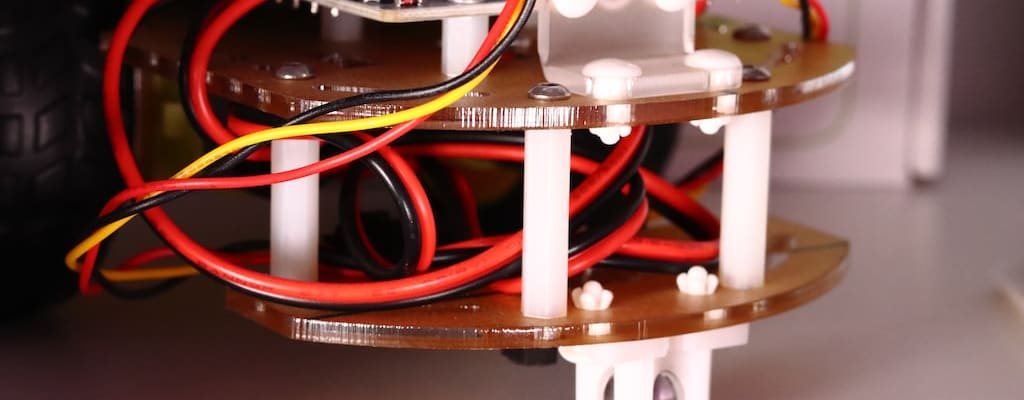take a turn for the better: Idiom Meaning and Origin
What does ‘take a turn for the better’ mean?
The idiom "take a turn for the better" means to improve or become more positive, typically after a period of difficulty or negativity.

Idiom Explorer
The idiom "the ball is in someone's court" means that it is now someone's turn or responsibility to take action or make a decision.
The idiom "take the cure" means to undergo a treatment, typically for an addiction or a medical condition, in order to recover or improve one's health.
The idiom "take for a spin" means to test or try out something, usually a vehicle or a new product, by taking it on a short journey or using it for a short period of time.
The idiom "take a turn for the worse" means that a situation or someone's condition has deteriorated or become more negative than before.
The idiom "take a turn" means to change direction or course, often unexpectedly or without prior planning. It can also refer to undergoing a transformation or experiencing a shift in circumstances. This phrase is commonly used in both literal and figurative contexts.
The idiom "take a risk" means to undertake an action or make a decision that involves uncertainty or potential danger, often in pursuit of a desired outcome. It implies a willingness to face potential negative consequences and to step outside of one's comfort zone.
The idiom "swing round the circle" means to go through or visit a series of locations or events in a circular or repetitive manner.
The idiom "swing of things" refers to becoming accustomed to a new situation or getting back into the groove of something after a period of being away or unfamiliar with it.
The idiom "strike it lucky" means to suddenly have unexpected success or good fortune.
The idiom "straighten out" means to resolve or clarify a confusing or chaotic situation, or to correct someone's behavior or thinking.
Fortunate Twist
The idiom "take a turn for the better" is a common phrase used to describe a positive change or improvement in a situation or condition. It is often used to express the idea that something has shifted from a negative or undesirable state to a more favorable one.
The exact origin or specific historical usage of this idiom is difficult to pinpoint with certainty. However, it is likely derived from the notion of turning or changing direction, which is a metaphorical representation of a shift in circumstances or fortunes.
When something "takes a turn for the better," it typically suggests that there has been a notable improvement or progression towards a more desirable outcome. This idiom is often used in reference to personal or health-related situations, such as a person's recovery from an illness, the resolution of a problem, or the improvement of a struggling business.
In popular usage, the phrase "take a turn for the better" has become ingrained in everyday language. It is frequently employed to convey a positive change in a wide range of contexts and situations.
Whether it's a sports team that has turned their performance around, a financial investment that has started yielding profits, or even a weather forecast predicting improved conditions, this idiom has proven to be a versatile expression of optimism and progress.
Another related idiom is "take a turn for the worse," which is the opposite of "take a turn for the better." It is used to describe a negative change or deterioration in a situation. For example, if a person's health starts to decline after showing signs of improvement, you could say that their condition has taken a turn for the worse.
When using the idiom "take a turn," the meaning can vary depending on the context. It can simply mean changing direction or shifting focus. However, it can also be used to describe a significant change in a situation or the outcome of an event. For instance, if a political election starts to shift in favor of a particular candidate, you might say that the race has taken a turn in their favor.
Another related idiom is "shape up," which means to improve or correct one's behavior, performance, or appearance. It is often used as an encouragement or a warning to someone who is not meeting expectations. For example, if an employee is consistently underperforming, their supervisor might tell them to shape up or risk losing their job.
Additionally, there is the idiom "star turn," which refers to a particularly outstanding performance or role by an actor or performer. It is used to highlight someone's exceptional talent or skill in a specific role or moment. For example, if a lead actor in a play delivers a mesmerizing performance that steals the show, you could say that they had a star turn.
The idiom "take the cure" is another related expression that is often used in health-related contexts. It refers to undergoing a treatment or therapy, often with the aim of recovering from an illness or condition. For example, if someone is diagnosed with a serious disease and starts a specialized treatment program, you might say that they are taking the cure.
As with any idiomatic expression, the meaning and usage of "take a turn for the better" can vary depending on the context and the speaker. It is important to consider the specific circumstances and nuances of a conversation to fully grasp the intended message behind the use of this idiom.
The idiom "take a turn for the better" is a widely recognized phrase that denotes a positive change or improvement in a situation. Despite the lack of precise historical information, its usage in everyday language and its metaphorical association with shifting fortunes make it a powerful expression of optimism and progress.
By understanding the meaning and context of this idiom, individuals can effectively communicate and celebrate improvements in various aspects of life.
Example usage
Examples of sentences using the idiom "take a turn for the better":
- After a long period of struggling, her financial situation finally took a turn for the better when she got a new job.
- The weather was terrible all day, but it took a turn for the better just in time for our outdoor event.
- He was feeling very ill, but his health started to take a turn for the better after starting a new medication.
More "Improvement" idioms



